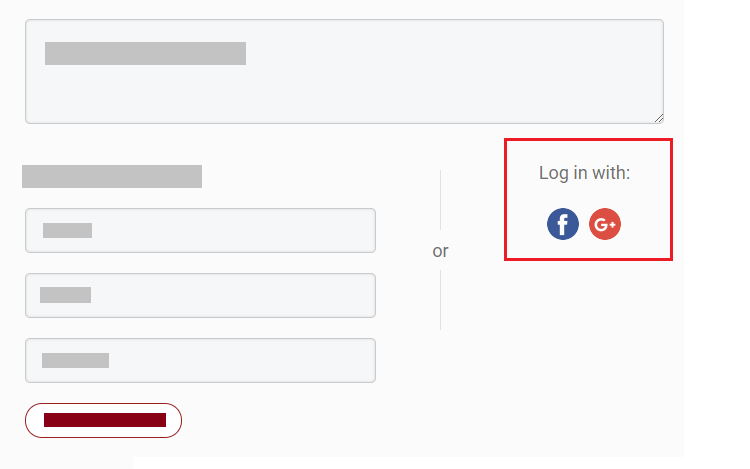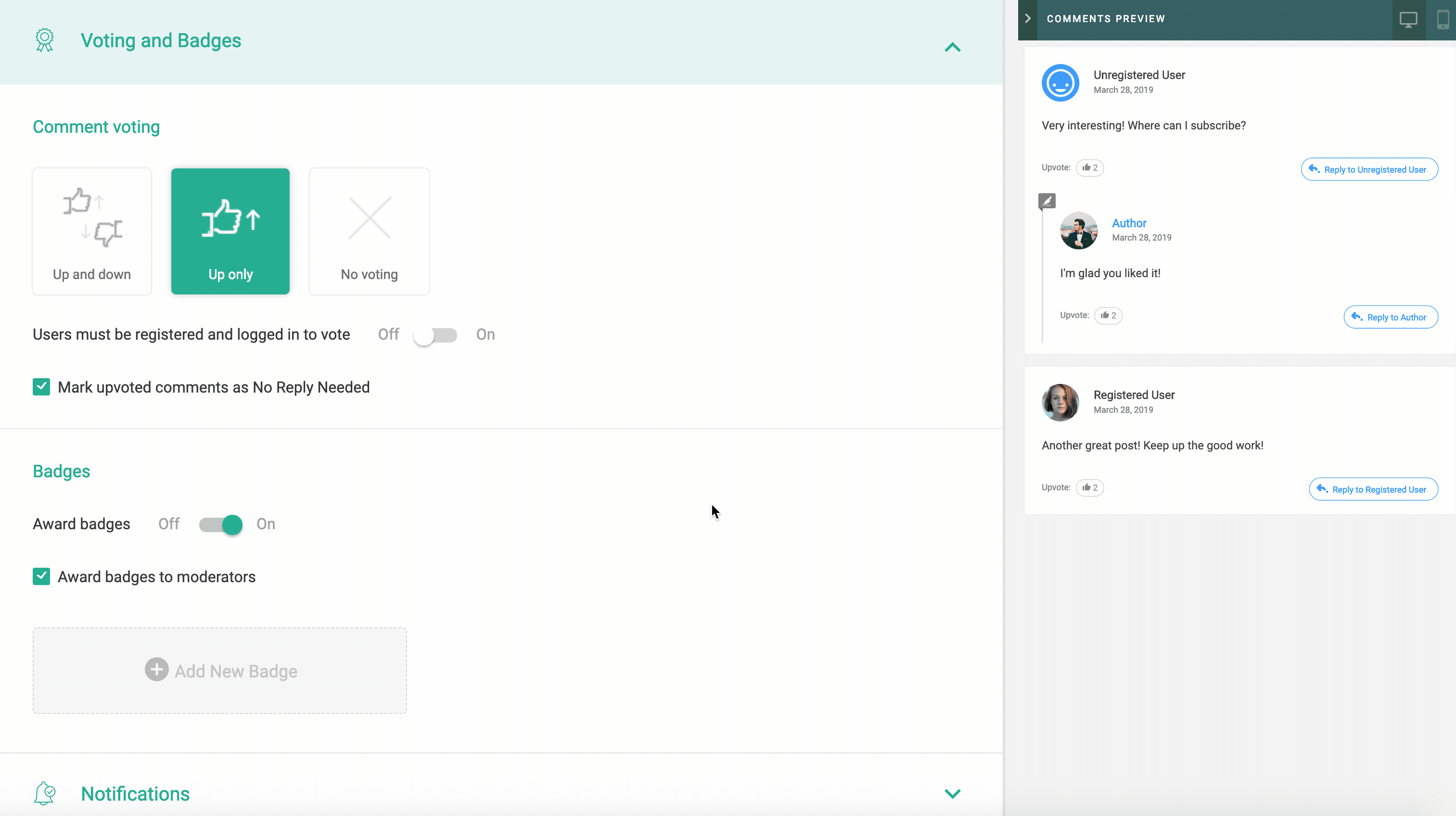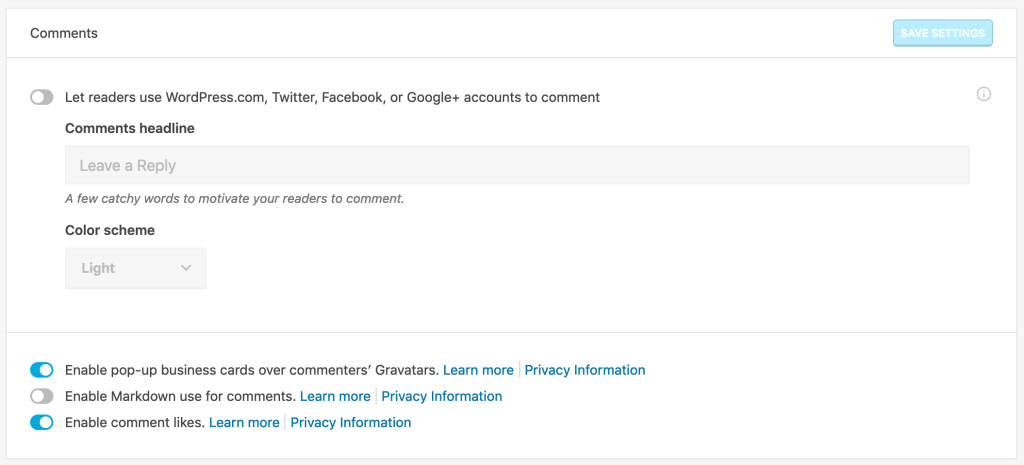An engaging WordPress comments section can add a ton of value to any blog.

It’s a great way to build a community, get to know your audience, and drive meaningful engagement around your content. That’s why comments have been a central part of WordPress for so long.
Unfortunately, the default WordPress comment system is pretty basic and hasn’t evolved much over the years. It gets the job done, but it lacks much of the functionality we’ve come to expect in the age of social media.
The good news is that there are a number of plugins that can extend or even replace the default WordPress comment system, providing a richer commenting experience for your readers.
We’ve extensively tested some of the most popular choices, and you can find a breakdown of our favorites below.
Criteria
First of all, what are we looking for in a WordPress comment plugin?
- Design — A good comment system is beautiful and well-designed, ideally with customization options to ensure it suits your existing theme.
- Comment Ownership — You should always own your comments, even if you decide to switch plugins in the future. If a comment plugin hosts your comments on a third-party server, they should always be synced back to the standard WordPress comment system so you never lose them.
- Features — The best comment plugins offer functionality that isn’t available in the default WordPress comment system. For example: social media sign-in, upvotes, streamlined moderation tools, and lead generation features.
- Ease of Setup — Setting up your new comment system should be as straightforward as possible.
- Pricing — We’re happy to support developers and pay for a great plugin. With that said, we’re definitely looking for fair and competitive pricing. We tested both free and premium plugins and carefully weighed the value against the price.
The Best WordPress Comment Plugin: Thrive Comments

Thrive Comments brings everything people love about social media to your WordPress comments section. With social sign-in options, Reddit-style upvotes, and custom badges for your most engaged commenters, it gives people real incentives to join the conversation and keep coming back.
It also helps you engage new commenters after they’ve left a comment by presenting them with a welcome message, giving them a free gift, or asking them to join your email list.
On the other side of the table, Thrive Comments adds a powerful moderation panel that helps you keep spam and negative comments to a minimum, while ensuring that your loyal commenters always get a reply when necessary.
At just $39 for a single site, Thrive Comments is a must-have plugin if you want to spruce up your comments section and boost reader engagement.
Design
Thrive Comments definitely gives your comments section a modern flare, but it doesn’t go over the top with fancy design elements. As a result, it should integrate seamlessly into any WordPress theme.
There are a handful of style options: you can customize the accent color, enable/disable avatars, set a default avatar, customize the date format, enable/ disable share buttons on individual comments, and show/hide the credit link:

These options are more than enough for most users, but if you want to make bigger changes you can always add some custom CSS using a child theme or the theme customizer.
Comment Ownership
With Thrive Comments, you retain full ownership of your comments.
When you install the plugin, your existing WordPress comments will be imported into Thrive Comments, and everything is always synced back to WordPress. So if you ever remove Thrive Comments, all of your comments will remain on your site. You’re never locked in.
Social Login
One area where the default WordPress comment system could use some improvement is the effort required to leave a comment. The standard comment form requires users to enter a name, an email address, and optionally a website URL. I know, it’s not that hard—but in today’s world of instant gratification, every second counts.
With Thrive Comments, you can greatly reduce that friction by allowing readers to sign in with a single click using their social media accounts:

Currently, Thrive Comments only supports Facebook and Google for its social sign-in feature. Most people have Facebook and Google accounts, so no worries there—but we’d love to see this expanded to include other platforms like Twitter.
Gamification & Community Building
The standard WordPress comment system doesn’t offer any real incentive to leave a comment. Thrive Comments, on the other hand, borrows some fun and addictive elements from social media to encourage comments and help you build a thriving community.
Voting

The Reddit-style upvote/downvote feature can help you draw some engagement from your silent readers, while providing commenters with a sense of satisfaction when others “like” their comments.
You can even sort your comments section by “Top Rated” so the most popular comments rise to the top.
In the Thrive Comments settings, you can choose to enable upvoting and downvoting, upvoting only, or no voting.
Badges
Badges are a cool way to reward your most engaged community members. Think of them as unlockable achievements: after a certain number of approved comments, replies, or upvotes, a user gets a special badge:

The badges and their criteria are totally customizable, and you can add as many unique badges as you want:

Featured Comments
Thrive Comments also allows you to “feature” one of your top comments. This will highlight it and pin it to the top of the comment thread, like this:

This is a great way to recognize a member of your community for leaving an extraordinary comment.
Conversion Features
Anyone who takes the time to leave a comment on your site is clearly among your most engaged visitors. So what are you doing to keep them engaged?
With Thrive Comments, you can use “post-comment actions” to bring people deeper into your ecosystem.
For example, you can redirect first-time commenters to a “welcome” page, show them an opt-in offer, or ask them to share the post on social media. You can then choose a separate action for people who have commented previously.

Email Notifications
Thrive Comments can also notify your commenters by email when their comments have new replies.
To do this, you’ll need to connect a third-party email marketing service like ConvertKit, MailChimp, Aweber, etc. (This is much less taxing on your server resources than sending notifications directly through WordPress.)
The emails themselves are completely customizable:

Moderation

The moderation features in Thrive Comments are clearly designed for managing lots and lots of comments.
You can moderate comments, feature comments, post replies, delegate replies to other users, and more—all from one central location. It even has keyboard shortcuts if that’s your thing.
You can also moderate comments on the front-end of your site using this handy little drop-down menu:

Pricing
Thrive Comments costs $39 for a single-site license.
We think that’s a great price for everything you get from this plugin, but it gets even better if you purchase multiple licenses. A 5-license pack is just $47, and a 15-license pack is $97.
We think Thrive Comments is the best comment plugin for WordPress. If you want to give it a try, you can get it from Thrive Themes here.
Runner-Up: Jetpack Comments
Jetpack is a plugin by Automattic that brings a number of WordPress.com features to self-hosted users.
One of those features is Jetpack Comments, a replacement for the default WordPress comment system.

Jetpack Comments offers a more modern-looking interface, as well as the ability to “like” comments and log in with social media accounts. Commenters can also opt to be notified of follow-up comments and/or new blog posts by email.
Like Thrive Comments, Jetpack syncs your comments back to WordPress so you don’t have to worry about losing anything if you disable the plugin.
Once you’ve installed Jetpack, enabling Jetpack Comments is as easy as flipping a switch. Just go to Jetpack > Settings, navigate to the Discussion tab, and enable the setting to “Let readers use WordPress.com, Twitter, Facebook, or Google+ accounts to comment.”

Customization is definitely a weak point of Jetpack Comments. You can change the comments headline and choose a light or dark color scheme, but everything else is pretty much set in stone. You can’t even modify the styling with your own CSS, as the comments are hosted on WordPress.com and embedded on your site using an iframe.
But if you’re happy with the design and just want an easy way to improve your comments section with upvotes and social login buttons, Jetpack is a solid choice.
The module is available to all Jetpack users, including those on the free plan.
Jetpack lacks some of the functionality and customization options of Thrive Comments, but at the price of $0 it remains a very attractive choice. You can get Jetpack here, or learn more about the Jetpack Comments feature here.
Other Contenders
De:comments

De:comments offers a nearly identical feature set to Thrive Comments: social login, voting, custom notifications, badges, etc.
However, it’s priced a bit higher at $50 for a single site, and the default design doesn’t feel quite as sleek as Thrive’s (of course, you can style it yourself using CSS).
De:comments seems like a solid plugin, but it doesn’t offer enough to sway our recommendation at this time.
wpDiscuz

wpDiscuz is a solid alternative to our top picks above. It builds on the existing WordPress comment backend, adding new features like social login, voting, subscriptions, comment sharing, and more.
It’s priced on a freemium model: the plugin itself is free, but there are a number of premium add-ons available to extend the functionality. The add-ons can be quite powerful, but with many of them starting at $25 they can get expensive quickly. (There is also an add-on bundle than includes 16 add-ons for $99.)
Overall we found wpDiscuz to be quite a capable solution, but not the most economical option if you choose to purchase add-ons.
Disqus

In the past, Disqus would have easily been our top choice, but due to some questionable business decisions on their part, we can no longer recommend them.
First of all, don’t get me wrong: the Disqus comment system offers the full package—modern design, full comment ownership, social login buttons, voting, notifications, an outstanding moderation panel, and more. And it just works—you can get it up and running on your site in a matter of seconds. Best of all, the basic version is completely free.
However, in an apparent attempt to drive revenue after giving so much away for free, Disqus began inserting affiliate links into users’ website content—outside of the comments section—even when they had explicitly opted out.
In addition to their shady affiliate tactics, the free version of Disqus is also now ad-supported, meaning you’ll have to pay at least $9 per month to remove their ads from your comments section.
The affiliate link debacle was a serious breach of trust, particularly for sites that rely on their own affiliate links to pay the bills. And it’s hard to justify paying $9 a month indefinitely when Thrive Comments offers an arguably better product for a one-time price of $39—not to mention Jetpack’s free plan, which is not ad-supported.
WpDevArt Facebook Comments

WpDevArt Facebook Comments is a free plugin that makes it incredibly easy to add Facebook comments to your WordPress site.
I don’t have much to say about the plugin itself—it works exactly as advertised. If you want Facebook comments, this is your plugin.
With that said, the Facebook comment system fails to meet one of the core criteria we defined at the top: comment ownership.
If you use Facebook comments, Facebook owns your comments. If you ever move to another comment system, you will lose all of your past comments.
Sure, it makes commenting easier because most people are already logged into Facebook—but ownership of your comments is a serious tradeoff, and for us, it’s a dealbreaker.
WordPress Native Comments
Let’s not forget that WordPress has a highly capable comment system built into core. While it doesn’t have all the bells and whistles offered by the other plugins on this list, it has stood the test of time as one of the web’s most ubiquitous comment systems.
If you don’t need features like upvotes, social login buttons, or advanced notifications, there’s nothing wrong with keeping the default comment system.
Final Thoughts
The best WordPress comment plugin is well-designed, lets you retain ownership of your comments, and enhances the experience for both commenters and moderators. We couldn’t find a plugin that did these things better than Thrive Comments.

